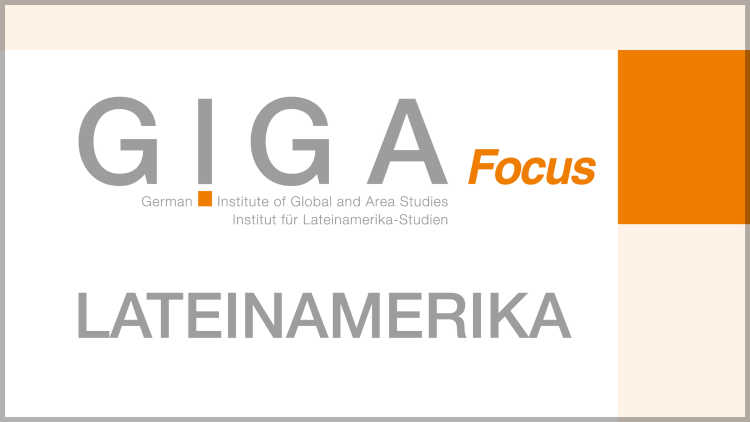- Startseite
- Publikationen
- GIGA Focus
- Bolivia: How Absolute is Morales’ Power?
GIGA Focus International Edition English
Bolivia: How Absolute is Morales’ Power?
Nummer 2 | 2010 | ISSN: 1862-3581
Bolivian president Evo Morales began his second period in office on January 22, 2010, following a sweeping win with 64 percent of the vote in the December 2009 early general election. As a result, Morales can count on a two-thirds majority in the Senate and a close to absolute majority in the Chamber of Deputies. This will allow him to continue with his “refounding of Bolivia” – provided his party can win the upcoming municipal and prefecture elections on April 4.
Analysis
President Morales has managed to consolidate his power. Since the December 6 election he has tilted the current power struggle considerably in his favor by neutralizing most of the opposition. The government’s next steps will be to reform the judicial branch and the electoral court. At the same time, it will have to pass the legal framework for the constitutionally mandated regional, municipal and indigenous autonomic process. Moreover, it will have to step up the political campaign to win prefectures and municipal governments from the opposition in April 2010 as absolute control of government will depend on the outcome of these elections.
Some constraints to the ruling party, the Movement Towards Socialism (MAS), might come from within its ranks. The intellectuals and middle-class assembly members, especially in the Senate, were included in the lists of candidates as part of a strategy to entice middle-class voters to support Morales. The problem might be that these people do not support the totality of the government’s more radical dogmas.
The current opposition, made up of Plan Progreso para Bolivia-Convergencia Nacional and Unidad Nacional, has been significantly weakened in the legislative as well as in the political arena. At present there are doubts as to what role they will play in the new legislature.
The traditional opposition, made up of parties such as MNR, ADN, MIR, CSU, etc., seems to have opted to retreat to the departmental level. These parties will be taking part in the next prefecture and municipal elections in April 2010. They will seek to articulate a new kind of opposition at the departmental level.
Fußnoten
Regionalinstitute
Forschungsschwerpunkte
Wie man diesen Artikel zitiert
Buitrago Bascopé, Miguel A. Buitrago (2010), Bolivia: How Absolute is Morales’ Power?, GIGA Focus International Edition English, 2, Hamburg: German Institute for Global and Area Studies (GIGA), http://nbn-resolving.de/urn:nbn:de:0168-ssoar-274291
Impressum
Der GIGA Focus ist eine Open-Access-Publikation. Sie kann kostenfrei im Internet gelesen und heruntergeladen werden unter www.giga-hamburg.de/de/publikationen/giga-focus und darf gemäß den Bedingungen der Creative-Commons-Lizenz Attribution-No Derivative Works 3.0 frei vervielfältigt, verbreitet und öffentlich zugänglich gemacht werden. Dies umfasst insbesondere: korrekte Angabe der Erstveröffentlichung als GIGA Focus, keine Bearbeitung oder Kürzung.
Das German Institute for Global and Area Studies (GIGA) – Leibniz-Institut für Globale und Regionale Studien in Hamburg gibt Focus-Reihen zu Afrika, Asien, Lateinamerika, Nahost und zu globalen Fragen heraus. Der GIGA Focus wird vom GIGA redaktionell gestaltet. Die vertretenen Auffassungen stellen die der Autorinnen und Autoren und nicht unbedingt die des Instituts dar. Die Verfassenden sind für den Inhalt ihrer Beiträge verantwortlich. Irrtümer und Auslassungen bleiben vorbehalten. Das GIGA und die Autorinnen und Autoren haften nicht für Richtigkeit und Vollständigkeit oder für Konsequenzen, die sich aus der Nutzung der bereitgestellten Informationen ergeben.

